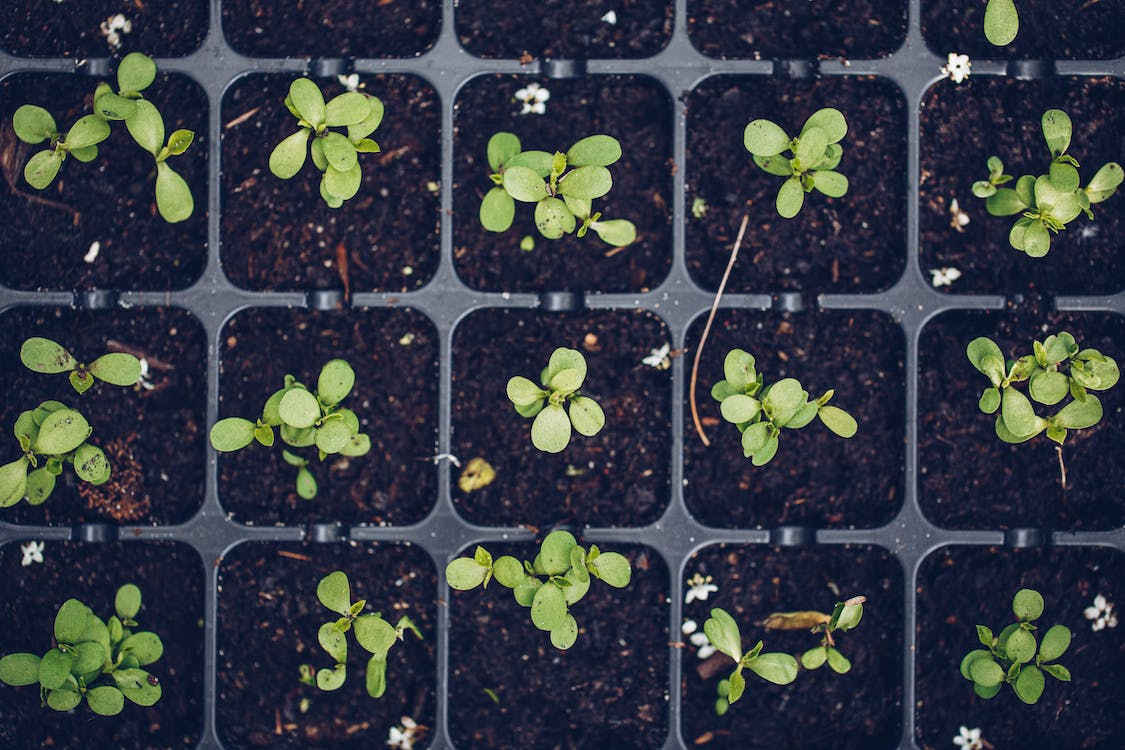When we buy plant foods or fertilisers for our gardens we see on them the letters N:P:K followed by numbers which indicate the amounts of each of these elements.
The NPK stands for Nitrogen, Phosphorus and Potassium.
Nitrogen provides growing power and helps make plant leaves and stems green.
Nitrogen is used to form basic proteins, chlorophyll, and enzymes for the plant cells. In short, a plant can’t grow without it.
Phosphorus stimulates budding and blooming. Plants need phosphorus to produce fruits, flowers, and seeds.
It also helps make your plants more resistant to disease. Phosphorus doesn’t dissolve like nitrogen. The soil will hang onto phosphorus, not releasing it into water.
Potassium promotes strong vigorous roots and resistance to disease.
Potassium is a nutrient your plants need for good internal chemistry.
Plants use potassium to produce the sugars, starches, proteins and enzymes they need to grow and thrive. Potassium also helps your plants regulate their water usage, and better withstand the cold.
I believe of the three elements its the phosphorus that is least understood by some gardeners.
In the distant past phosphorus was obtain from manures especially bird or bat droppings called guano. Phosphorus was also obtained from Reactive Rock Phosphate which is a hard phosphatic rock.
In most soils it dissolves very slowly.
To make the rock phosphate more readily available to plants it was discovered that a process using sulfuric acid, early in the 1900s, would breakdown the reactive rock phosphate so a new agricultural fertiliser was created called Super or Super Phosphate.
It became a boon to agriculture and farming with tons of Super been spread to cause fast growth in fields and crops.
Unfortunately like a number of discoveries such as DDT and Asbestos, there was a hidden price to pay.
Super phosphate kills soil life and with their demise leads to unhealthy plants/grasses.
Not only that, it is now known that Super laden plants and grasses can cause health problems in stock including cancers. (Chlorine and acidic products also destroy soil life including earth worms. Overt time through continued use soil becomes inert or lifeless).
I read a very interesting book some years ago called ‘Cancer, Cause and Cure’ written by an Australian farmer, Percy Weston.
Percy observed the results of the introduction of Super on his farm and the changes that occurred.
If you are interested the book can be obtained by mail order. The book made me reconsider the use of Super phosphate in garden fertilisers.
Interestingly I have never been an advocate of Super phoshate and to the best of my knowledge have never purchased it as a stand alone fertiliser for my gardens.
Though I have on odd occasions in the past used General Garden Fertilisers.
Fortunately I have always preferred sheep manure pellets, animal manures and natural products as my general plant food.
Now days I avoid using chemical fertilisers or chemical sprays including any herbicides anywhere on my property.
But I have noticed in the past, that even though I have obtained good healthy crops and plants, there is some factor that appears to be missing and the crops are not as lush as I feel they could be.
I have often thought that I am not getting sufficient phosphorus in my composts and mulches.
This caused me to do a bit of research on the Internet and found to my delight a company in New Zealand who make a product called BioPhos.
They take the rock phosphate and break it down naturally with micro organisms making it as readily available to plants as Super phosphate is.
The company sent me a email booklet and it showed trials that proved that not only did BioPhos work as well as Super, but actually better as it did not have a ?peak? growth on application and gave a much longer sustained release of phosphorus to plants.
Instead of killing soil life it actually supplies new micro organisms to the soil which carry on breaking the natural phosphorus down, meaning that only one application is needed per year unless you are cropping during the winter as well.
Some rose growers and rose societies recommend using BioPhos for better, healthier roses. BioPhos contains phosphate, potassium, sulphur and calcium at the rates of P10:K8:S7:Ca28.
It is pH neutral and used at the following rates; New beds work in 100 grams per square metre, the same with lawns but water in to settle.
Side dressing plants; seedlings 8 grams (a teaspoon full) around base of the plant or in the planting hole.
Same for potatoes (which do well with phosphorus) Sowing beans peas etc sprinkle down row with seeds.
Roses and similar sized plants 18 grams or a tablespoon full around plant or in planting hole.
Established fruit trees etc, spread at the rate of 100 grams per square metre around drip line or where feeder roots are.
Apply to vegetable gardens in spring and a further application in autumn if growing winter crops. Can be applied to container plants also.
Gardeners that use Biophos for the first time around their gardens often contact me tell how much their gardens have improved within a few weeks of using the product.
Maybe because the gardens are missing phosphate and a sprinkling gives the plants what they have been wanting.
Image credit: Damien Apanasowicz
Products mentioned are from Wallys Range of products and can be found in some garden shops or by Mail Order on www.0800466464.co.nz
Problems ring me at: Phone 0800 466464
Garden Pages and News at www.gardenews.co.nz
Shar Pei pages at www.sharpei.co.nz
Mail Order products at www.0800466464.co.nz

